Reducing the negative impacts of climate change and helping communities and ecosystems adapt will be an added lens to guide grantmaking, impact investments, convening, communications, and leadership engagements at Gates Family Foundation.
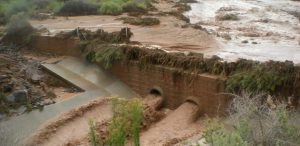
Overloaded stormwater infrastructure in Grand Junction
The decision was informed by a June 2019 board and staff retreat that focused on the challenges that a changing climate pose for Colorado and the work of the Foundation. Our guests – including former Colorado Governor Bill Ritter and the Nature Conservancy’s Tim Sullivan – helped us explore the latest science, what we know about likely impacts in Colorado, how the policy and marketplace landscapes are changing, how businesses are beginning to respond, and what related opportunities and risks look like for institutional investors.
At the conclusion of the retreat, we agreed that because climate outcomes will have a profound impact on the state and the core areas of interest for the Foundation — and much of the work that Gates is already doing has a direct connection to climate — it makes sense for the Foundation to use its resources more intentionally to contribute to achieving the best climate outcomes possible for the state’s people and ecosystems.
In December, Gates board and staff reconvened to decide on an approach moving forward. We agreed that, rather than create a new “climate program”, the Foundation’s approach should build on existing knowledge and relationships to contribute to climate solutions that apply in each of our core areas of interest, and make use of all of the tools at our disposal. While we will need to be selective in where we engage, we should be using climate as a lens that influences the way we do much of our work — from grantmaking and impact investing, to convening, communications, and the leadership roles our staff commits to in the community. We will also be looking for opportunities that have relevance for Colorado, and where we believe we can have a meaningful impact. Lastly, we should ensure that the way we operate as an organization is consistent with a commitment to addressing climate in a responsible and urgent manner.
Climate Impacts and Issues
To develop the Foundation’s strategy, we first considered how drier, hotter, and less predictable weather – including reduced snowpack and faster runoff – is impacting Colorado communities, natural resources, and education, currently and into the future:
Unpredictable and severe weather not only threatens to destabilize Colorado’s rural agricultural economies, but also creates or exacerbates the potential for “ripple effect” impacts at a systems Farming and ranching provide jobs, commodities, and critical stewardship value for preserving open space, fish and wildlife habitat, soil health and carbon sequestration, and water quantity and quality.
- Reduced snowpack and faster runoff impacts the winter sports tourism economy, threatens the ecological health of Colorado’s river basins, and threatens the state’s compliance with water delivery obligations to other states. Hotter weather increases overall water consumption in both urban and rural areas. By 2050, summer drought severity in Colorado is projected to be among the worst in the country.
- The incidence and severity of wildfires is likely to increase along with an extended fire season, leading to a continued decrease in the health and function of forested watersheds, a decline in water quality in affected basins, a loss of wildlife habitat disrupting seasonal patterns, and the displacement of recreational uses.
- Low-income communities face disproportionate impacts from flooding and other natural disasters. Unstable international energy markets may increase the cost of energy for daily activities, like driving cars and heating homes, also disproportionately impacting low-income households.
- When extractive industries including coal and natural gas decline, communities reliant on them for jobs and tax base must adapt or also face decline. As sources of renewable energy are developed and brought to scale, new jobs will be developed – though resulting infrastructure also holds the potential to further fragment sensitive habitat and affect the value of existing protected lands.
- Local educators must be prepared to teach about climate change and methods for mitigating impact, and prepare students for workforce opportunities that reflect each community’s changing job market. Climate change impacts are greatest in rural school districts, yet there are fewer resources to recruit, train, support, and retain teachers who are prepared to teach about climate change.
- Climate change is a politically-charged issue and not all agree on how it should be taught and what should be taught. Gates should support education efforts that focus on science, not political debates. Standards for climate change are not yet consistent across states (Colorado adopted the Next Generation Science Standards in 2014), and teachers do not yet feel equipped to teach about it, as it is an evolving science.
- Climate change will increase demand in schools and other buildings for energy and air conditioning, and require new maintenance and landscaping practices that reduce ecological impacts and heat island effects.
This increased emphasis on climate will build on work the Foundation has been pursuing for a number of years – supporting green building and the use of renewables, promoting multi-modal mobility solutions, investing in protection of grasslands and healthy forests, and encouraging compact and efficient models of urban growth. This focus will also build on investments already made in the Foundation’s portfolio in sustainable forestry, carbon sequestration, and technologies that drive more efficient use of resources.
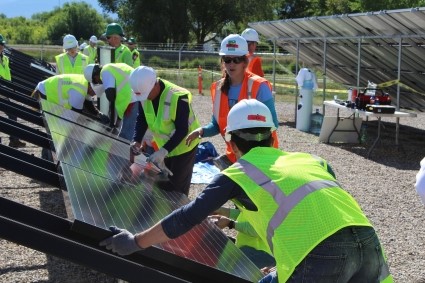
GRID Alternatives, a Gates Family Foundation grantee
Foundation Strategies and Examples
Board and staff also considered recent, ongoing, and potential future work to develop concrete examples of how this new “climate lens” approach touches each of the issue-based portfolios and other strategies. All of these examples align with or build on existing strategies and work adopted as part of the Foundation’s 2017-2021 strategic plan:
- Invest in parks, urban tree canopy, and green infrastructure that absorb heat, reduce run-off, and mitigate flooding.
- Support community planning efforts that anticipate a changing climate, such as planning for new transportation systems, net zero developments, increased green spaces, and updated infrastructure, like electric grid and storm water improvements.
- Support agricultural and food system sector investments that increase innovation and strengthen the sector, such as incentivizing farmers to diversify crops and developing markets for locally-adapted varieties resistant to drought.
- Advance Colorado’s Water Plan, which strives to balance between water supply and demand for both urban and rural users, by investing in specific projects and support for broader fundraising strategies.
- Support projects with agricultural producers to encourage reduction of water consumption, development of creative alternatives to “buy and dry”, and incentives for managing water to provide critical ecosystem services.
- Support at-scale landscape conservation and stewardship that restores, enhances, and protects critical habitats and outdoor recreation assets.
- Boost access to economic opportunity through workforce training for a climate-impacted economy, such as jobs in renewal energy, green infrastructure installations, and other new technologies.
- Support or launch initiatives that help K-12 students access high-quality education offerings that are informed and supported by organizations working on climate change issues.
- Empower students to act with their school communities and families to address social and economic issues related to sustainability.
- Support journalism, storytelling, and advocacy initiatives that advance a fact-based understanding of climate change – particularly what can be done at various levels (personal, community, state, global).
- Educate policy makers and encourage fellow funders to support climate smart efforts.
- Conduct a carbon audit of the Foundation’s public equity portfolio, to better understand what we own and the climate risk, resiliency, and relevance of the investment portfolio.

Bike commuting in Denver
Next Steps
Looking ahead to 2020 and beyond, Foundation staff and board members will continue looking for opportunities within our existing areas of strategic focus that also help communities and ecosystems reduce negative impacts and adapt to future changes. Increasingly, this will be a lens with which we vet all opportunities, to help us make good decisions in grantmaking, impact investments, convening, communications, and leadership throughout the communities we serve.

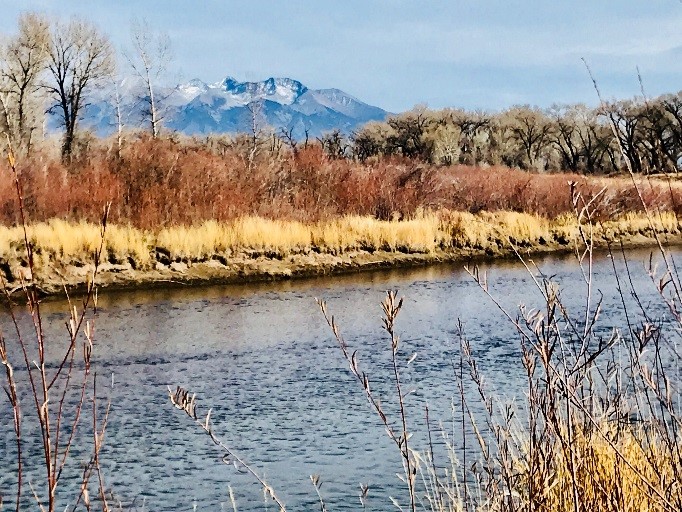
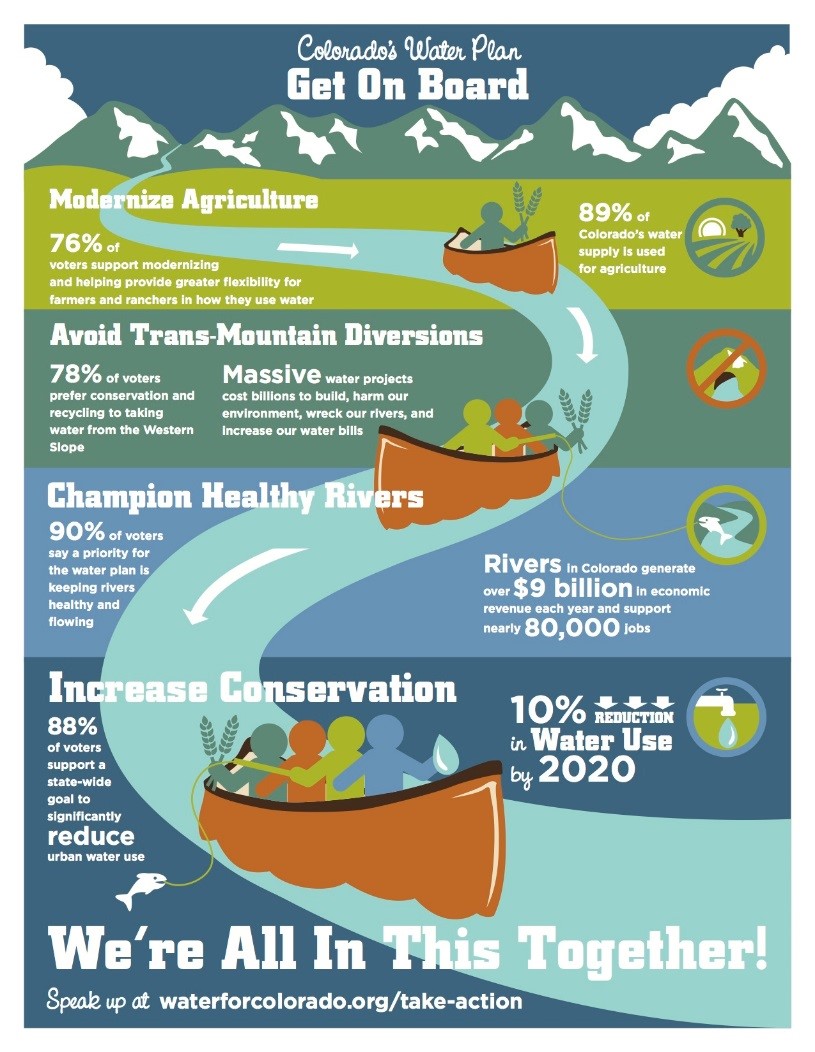 Unpredictable and severe weather not only threatens to destabilize Colorado’s rural agricultural economies, but also creates or exacerbates the potential for “ripple effect” impacts at a systems Farming and ranching provide jobs, commodities, and critical stewardship value for preserving open space, fish and wildlife habitat, soil health and carbon sequestration, and water quantity and quality.
Unpredictable and severe weather not only threatens to destabilize Colorado’s rural agricultural economies, but also creates or exacerbates the potential for “ripple effect” impacts at a systems Farming and ranching provide jobs, commodities, and critical stewardship value for preserving open space, fish and wildlife habitat, soil health and carbon sequestration, and water quantity and quality.
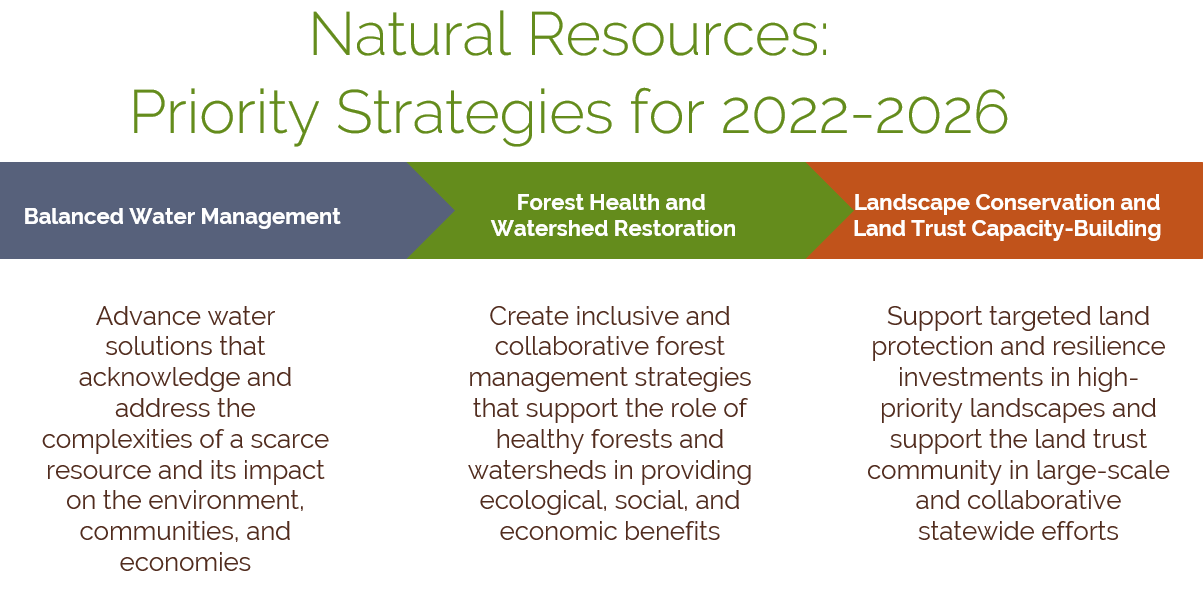

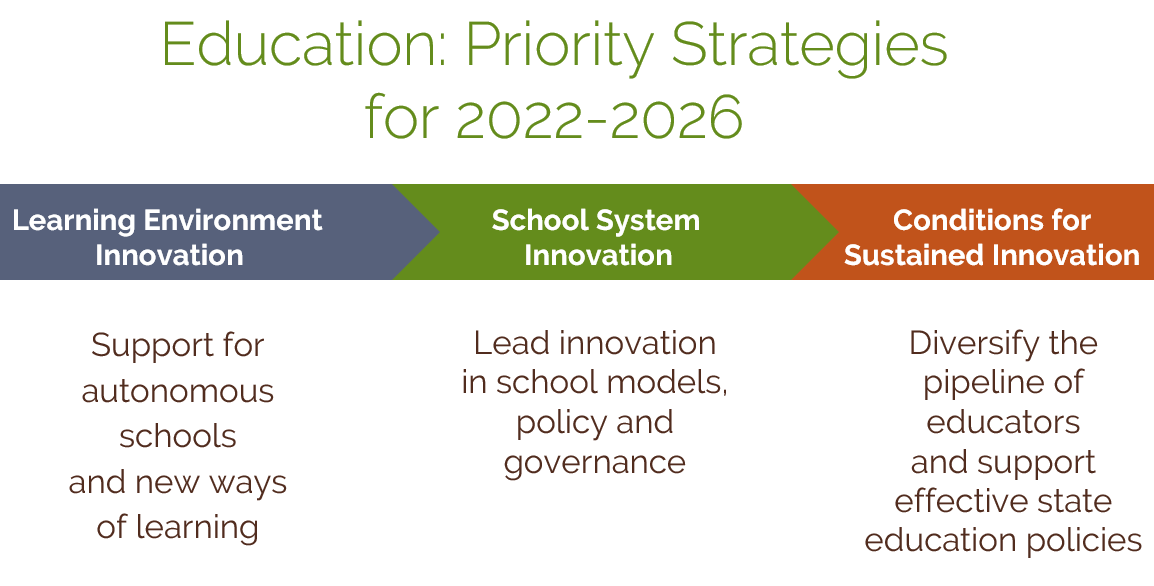

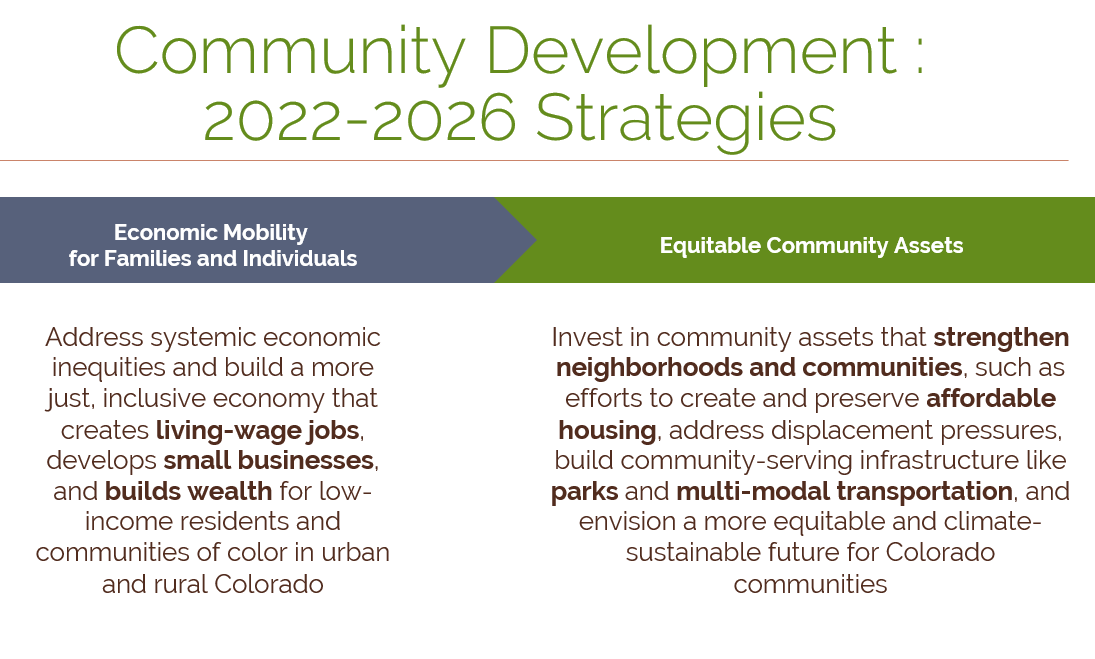

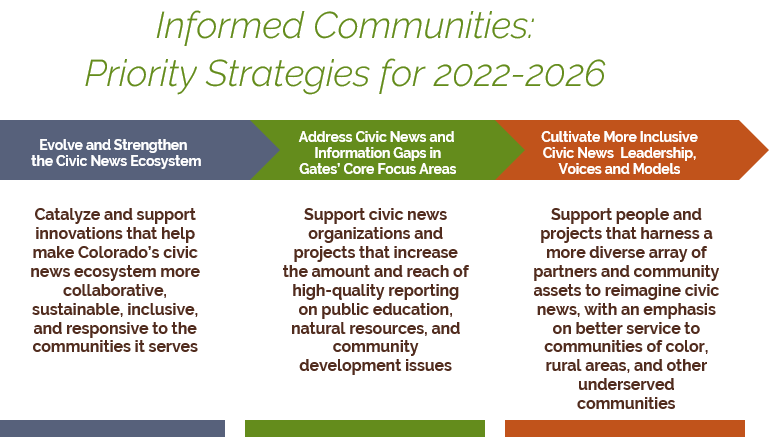
 Finally, also in 2023 a total of $410,956 previously committed by Gates to the
Finally, also in 2023 a total of $410,956 previously committed by Gates to the 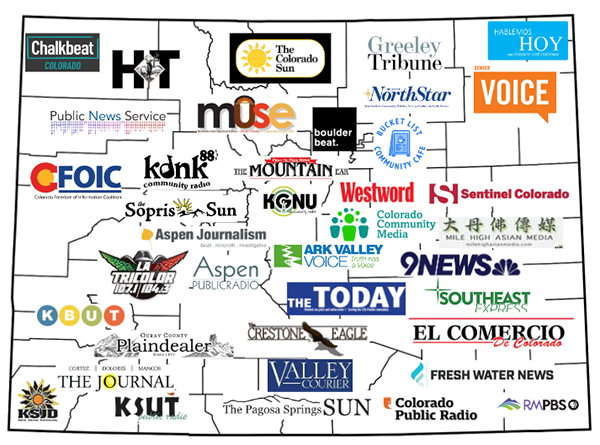 A total of $1,110,956 committed to the
A total of $1,110,956 committed to the 
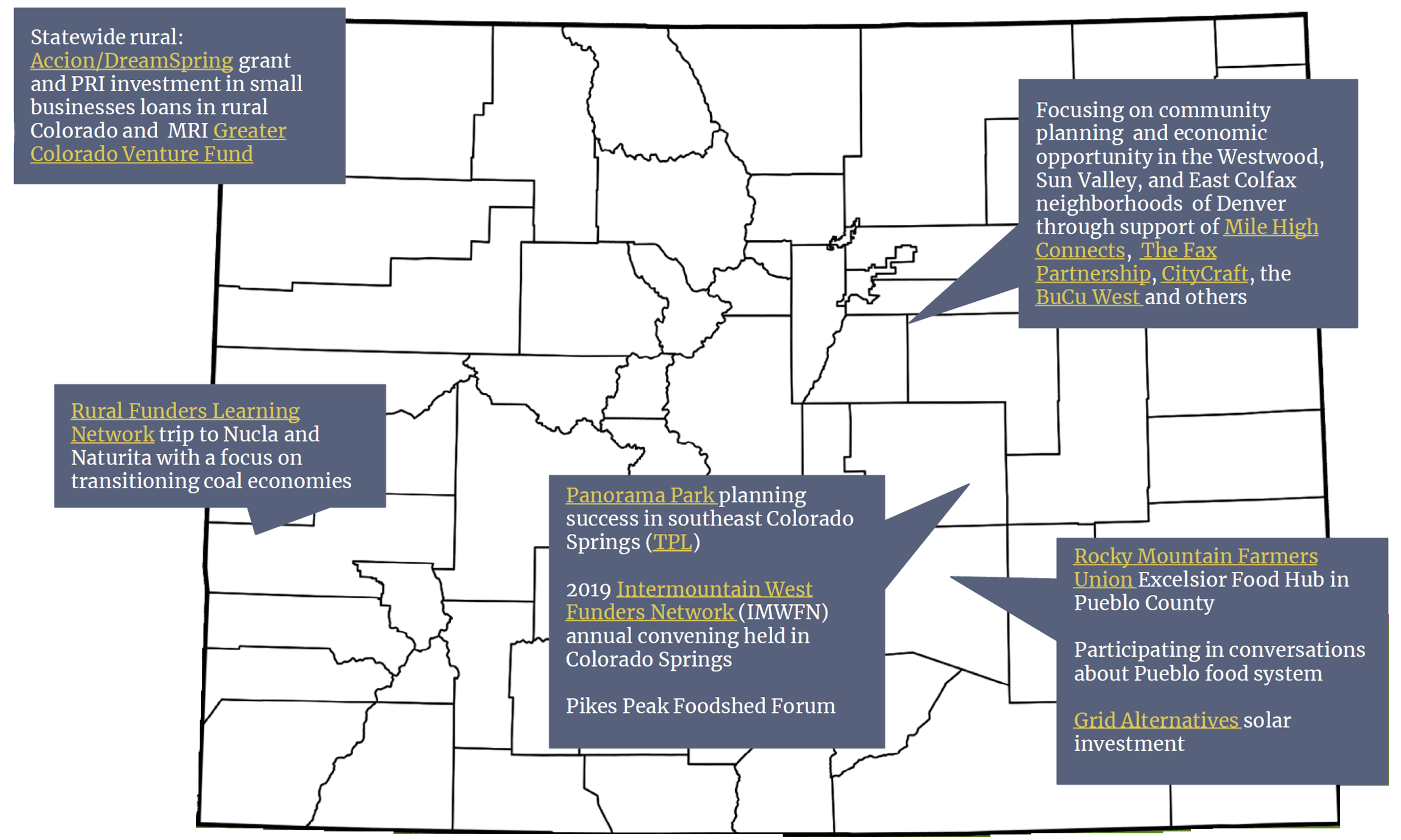 In 2019, the Community Development program committed $932,500 in strategic grants to 13 organizations and $465,000 in responsive capital grants to 12 organizations. New impact investments supporting vibrant communities in 2019 included a $500,000 MRI to
In 2019, the Community Development program committed $932,500 in strategic grants to 13 organizations and $465,000 in responsive capital grants to 12 organizations. New impact investments supporting vibrant communities in 2019 included a $500,000 MRI to 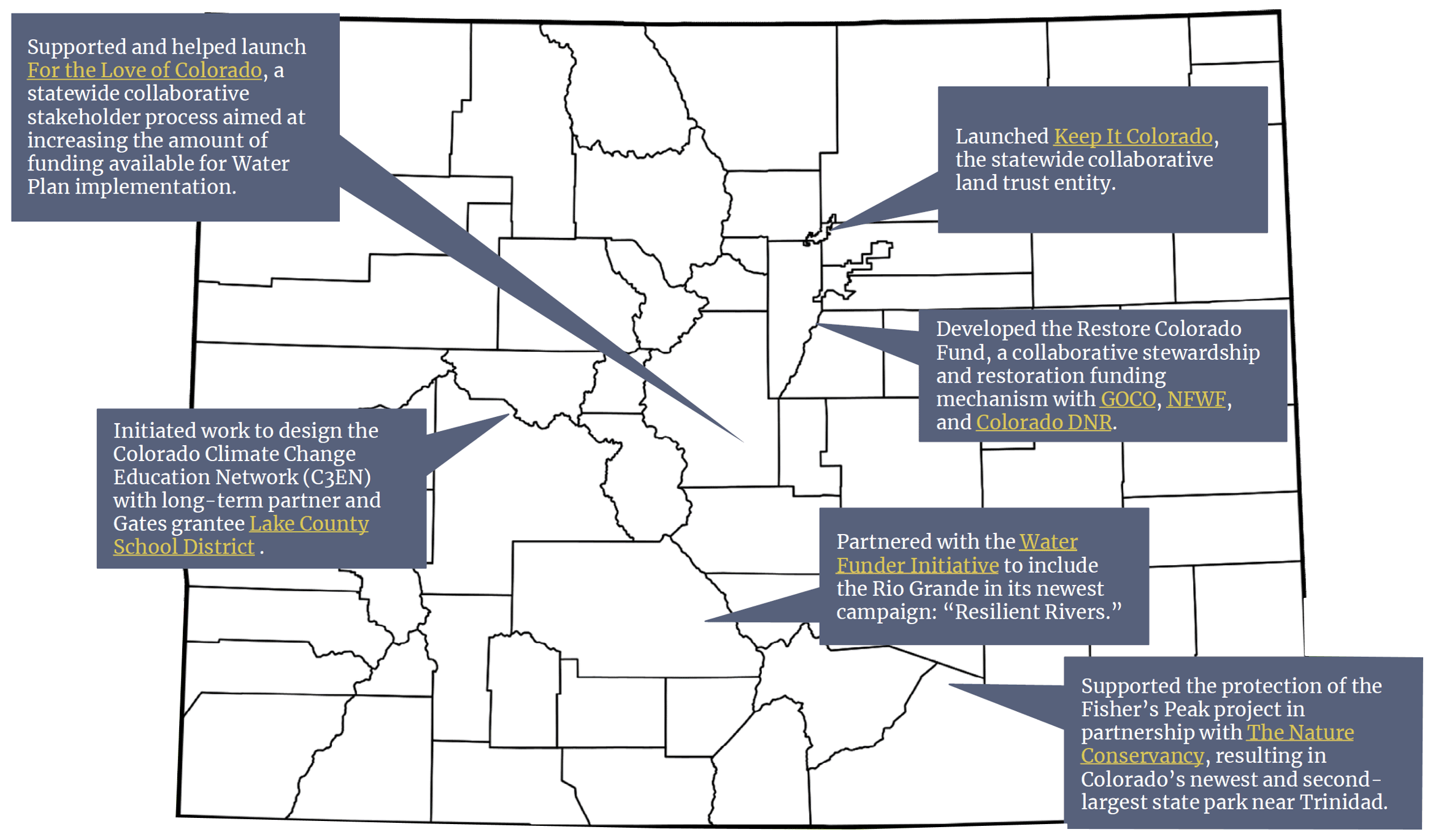 Our Focus Landscapes initiative, a key element of our Natural Resources program, underwent a comprehensive review, revision, and re-launch in 2019. This initiative was launched in 2011 to help Colorado achieve landscape-scale conservation through the protection of private lands in specific geographies. A great deal of progress was made in North Park, southeast Colorado, and the San Luis Valley, resulting in more than 200,000 acres of farm and ranch lands conserved, along with their associated ecological values. The strategic review process was done in close partnership with the land trust organizations representing those geographies, providing lessons-learned and an exploration of emerging opportunities. The revised Focus Landscapes initiative will first focus on two geographies:
Our Focus Landscapes initiative, a key element of our Natural Resources program, underwent a comprehensive review, revision, and re-launch in 2019. This initiative was launched in 2011 to help Colorado achieve landscape-scale conservation through the protection of private lands in specific geographies. A great deal of progress was made in North Park, southeast Colorado, and the San Luis Valley, resulting in more than 200,000 acres of farm and ranch lands conserved, along with their associated ecological values. The strategic review process was done in close partnership with the land trust organizations representing those geographies, providing lessons-learned and an exploration of emerging opportunities. The revised Focus Landscapes initiative will first focus on two geographies: